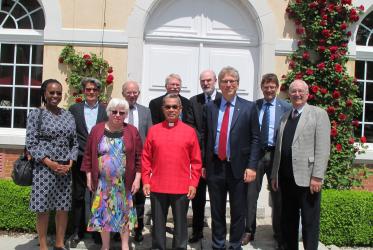Displaying 1 - 20 of 45
Dr Abuom reflects on women of faith as healers of creation
05 October 2021
Freedom of religion rooted in justice
06 March 2020
Human fraternity is a divine calling, says WCC general secretary
03 February 2019
A moment in ‘Time’: an interreligious vision in Erlangen
20 December 2018
Walking together against hatred and violence
26 February 2018
WCC delegation visits China
04 January 2018
WCC general secretary speaks on religion and discrimination
14 February 2017
Grand Imam calls for collaboration against violence and poverty
06 October 2016
Catholic-WCC group pursues new mandate
13 April 2016














